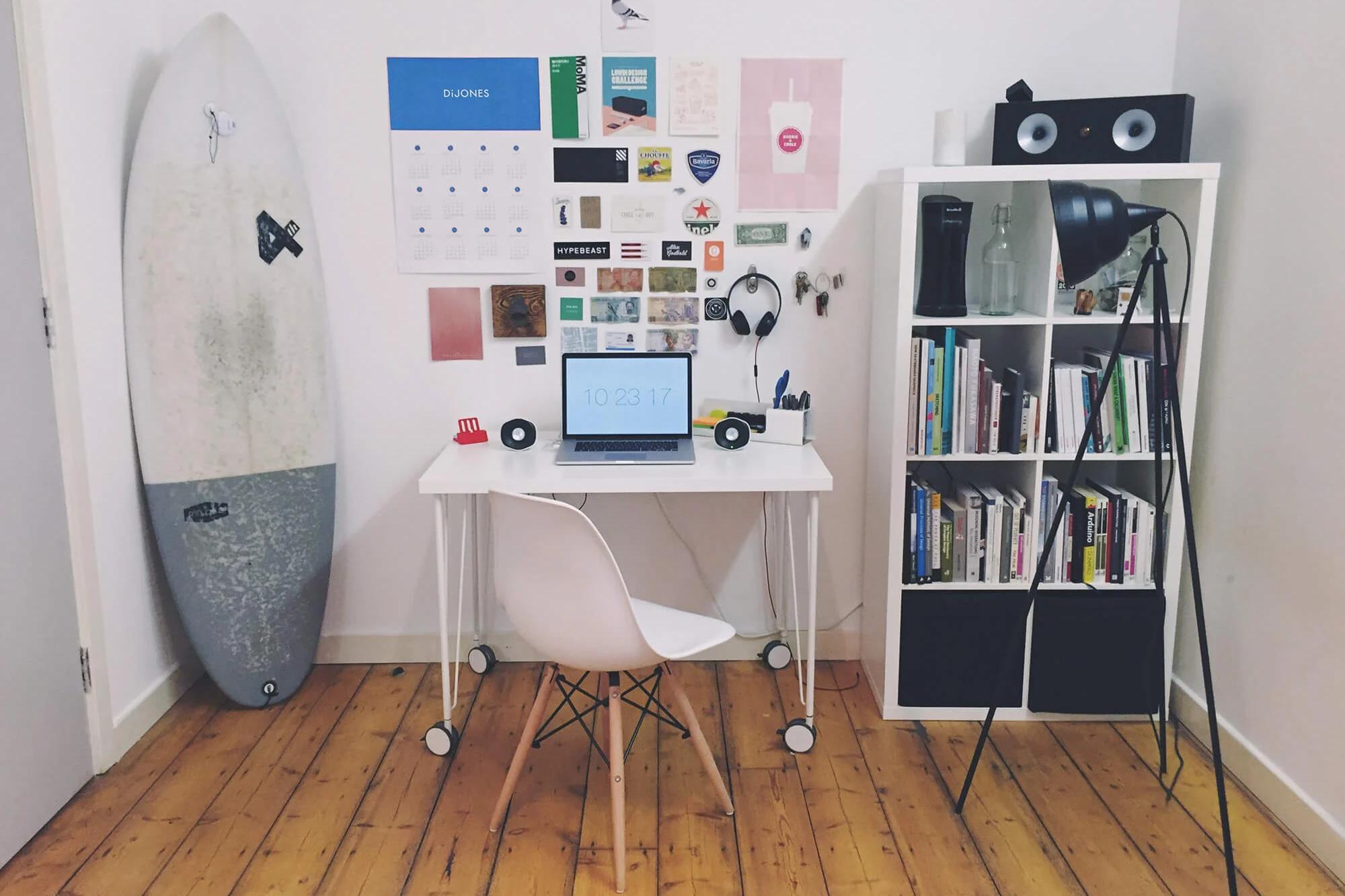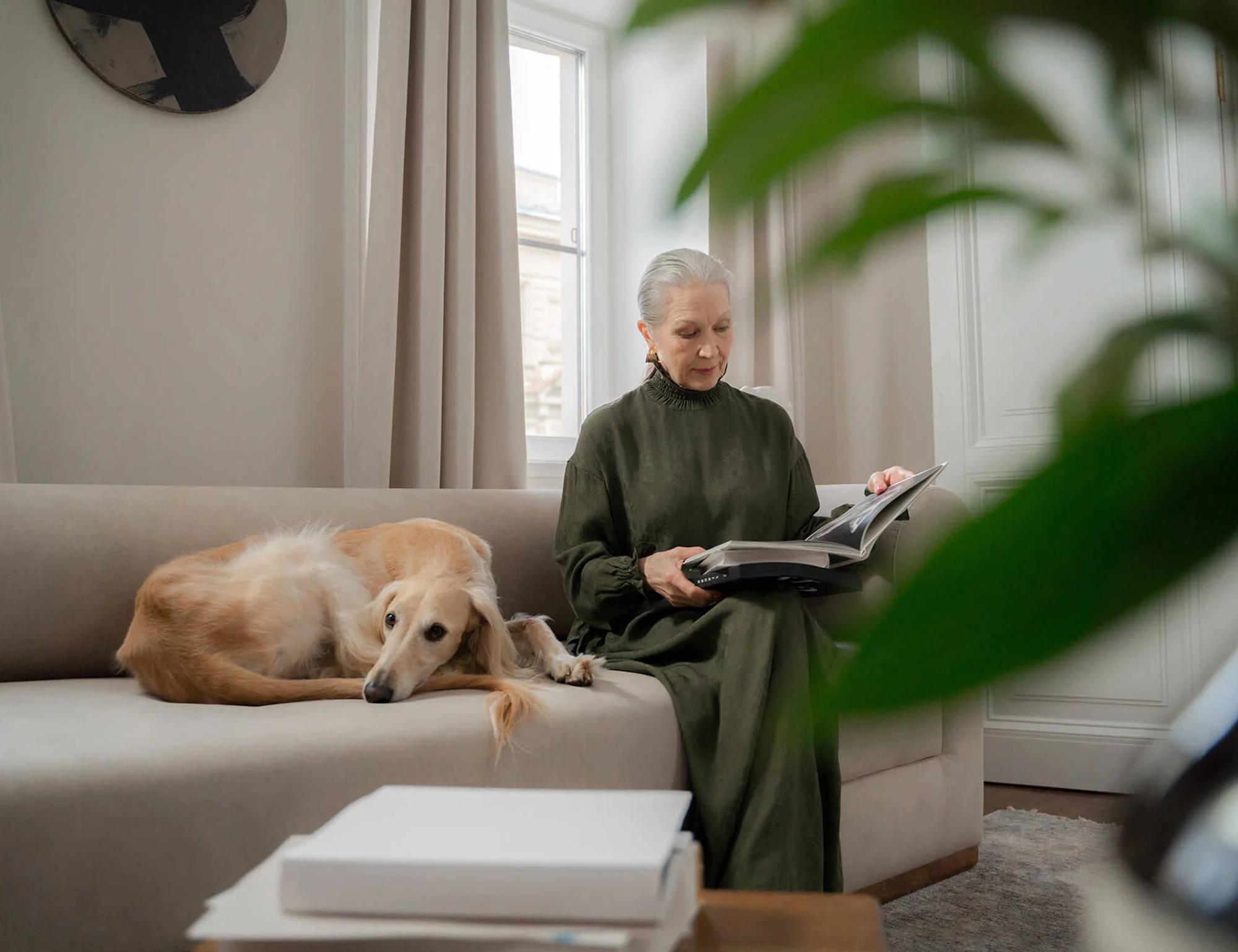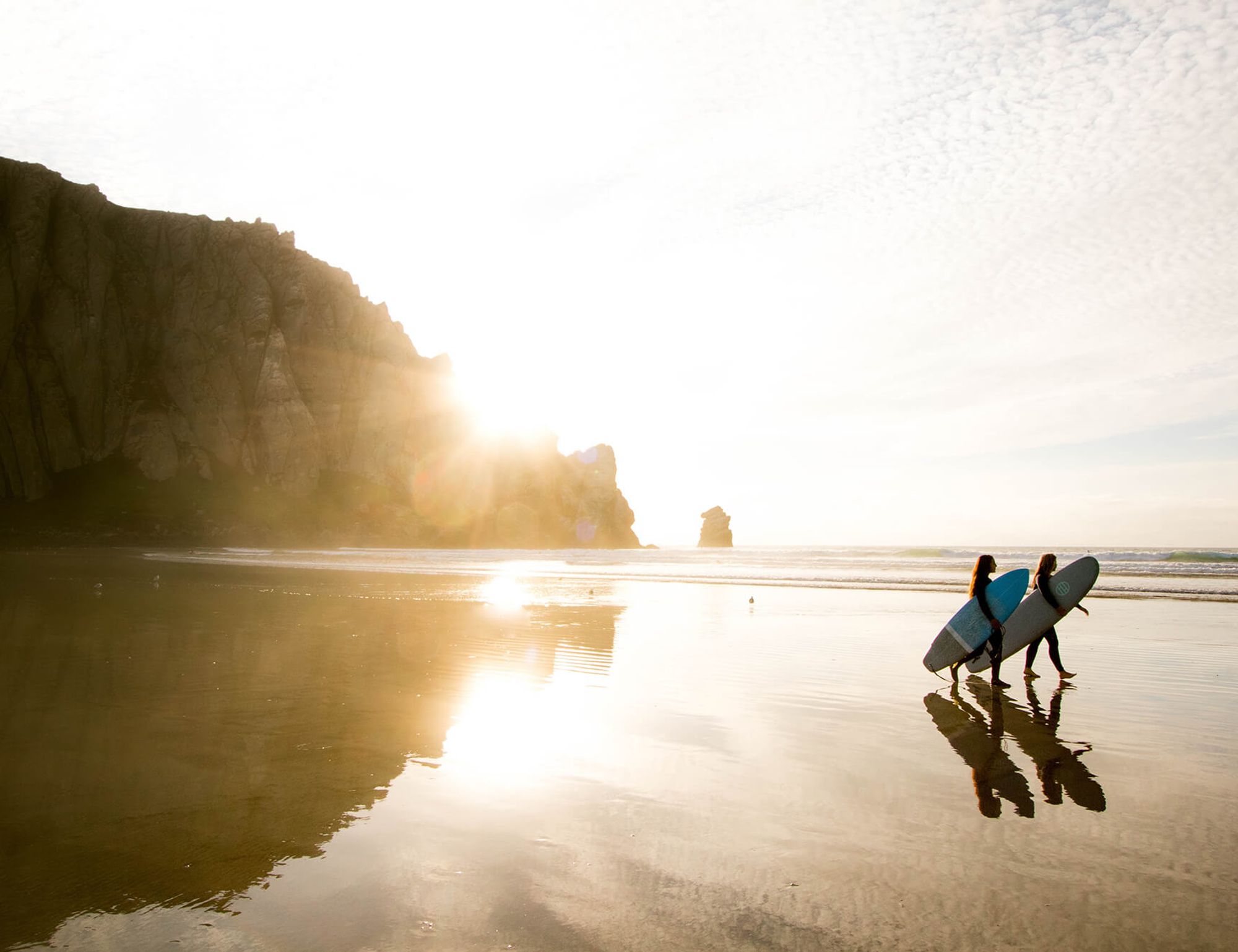
Guide to renting a property in NSW
Rental prices across NSW have steadily increased over the past year, driven by strong demand for larger homes and lifestyle-focused locations. With a noticeable shift back towards city living, with many workplaces encouraging more employees to work in the office over working from home.
In order to help you find and secure the right rental property, we have created this guide that walks you through the process and shares insights into how you can find and rent your next home.
We hope you find it useful.


How to find a rental property in NSW
Where to search for a rental property
The easiest way to find a rental property is with an online search. There are numerous websites or mobile apps that promote rental properties from right across NSW and are the easiest way to help you find a property to call home.
The benefit of searching online is the ability to customise your search. You can choose property types, the number of bedrooms and bathrooms, whether there is a garage, you can even look for a home with a balcony or swimming pool. Here are some sites to help you:
Aside from online options, you can also call the local property managers in the areas you are looking to rent, to see if anything is available that suits your needs. Or simply take a drive through your preferred neighbourhood to see if you can spot any ‘For Rent’ signs.
Also we suggest following the brands in your local area, such as Dijones on social media and read their Google My Business updates to stay across the local rental market.
What to look for at a rental inspection
Once you have found a property you are interested in, the next step is to visit the home and to do an inspection. Property managers will generally offer the property as being open for inspection on a particular day and at a particular time. Don’t be surprised if you find you are inspecting the property with many other ‘would be’ renters as some markets are extremely competitive.
Some property managers also offer you the option to book an inspection directly with them. Have a look on the rental listing to see if this is available. We can also help you with organising a virtual inspection of our rental properties. Talk to our property manager about this.
To help you find the right rental property here are some features to look for while inspecting the property:
- Is there enough natural light?
- Is there ample storage or options to add portable storage?
- How clean is the property?
- Is there cooling or heating?
- Will it fit your furniture?
- If there is a garden, how much maintenance is required?
- Is there gas or electricity or both? Is there solar?
- Is there a garage, carport or street parking only? Space for a motorbike or boat?
- Does the home have HVAC, and if so, in which rooms?
- Is there a dishwasher, oven, stovetop? Lots of bench space?
- Is there an ensuite? Does the bathroom have a bathtub?
- Check the outdoor area and yard. Is there enough space, and shade?
- Street – is it quiet or does it have high traffic?
- Large enough hot water system?
- Number of bedrooms
- Amenities such as a pool or gym?
- Secure windows and doors?
- Phone and internet / Pay TV / NBN
- Smoke alarms – are they compliant?



How to apply for a rental property
What information do I need to apply for a rental property?
Once you've found a property you are interested in, the next step is to submit an application. At DiJones we offer tenants the option of submitting a rental application online to help streamline the process.
An application usually requires you to fill out forms and supply some detailed personal information including:
- 100 points of ID, including a photo ID (drivers' licence or passport), Medicare card, birth certificate, car registration, and a utility bill in your name.
- Rental history and previous landlord's contact information.
- Bank statements.
- Personal referees.
- Employment details and contacts at current place of employment.
- Payslips or Centrelink income statement.
Make sure you have collated this information as it will form an important part of your rental application.
How to write a strong rental application
With the tough conditions currently facing the rental property market, writing a strong rental application could mean the difference between securing the lease or not. Although rental application letters aren't necessarily required, they can help you stand out from other applicants.
With your letter, start by giving a brief rundown of your rental history, your employment status and mention any special circumstances you might have, such as pets or disability access requirements. Tailor the letter to suit the specific property, even if you have applied for 10 others the same day. Tell the property manager why that property suits you, and why you would be a great tenant.
Attach any reference letters from personal and professional references. You should have known personal referees for at least 12 months. Include your 100 points of ID as mentioned above, as well as payslips. Or if you are self-employed, you'll need to include your profit and loss statement and tax assessment. Ask your previous landlord for a ledger of your payments and include your previous rental history. Credit score, criminal history and bank balances are optional, but may improve your chances of being chosen in a tough rental market.
After you have submitted your application make sure you follow it up with a phone call or an email to show you're interested.

Finalising and signing the rental lease
What are the costs of renting a property?
Aside from the rent itself, there are a few other costs to be aware of when renting a property. The most important is your Bond, or security deposit. When you first move into a rental, most landlords and property managers request that you pay the first two weeks rent up-front, along with the Bond, which in New South Wales is four (4) weeks rent.
Other costs include:
- Moving cost - including a removalist or truck / ute hire to do it yourself.
- Furniture - if you're renting for the first time, you'll want the basics to start with.
- Utilities - these are recurring costs that you'll need to pay regularly, such as electricity, water and the internet.
- Contents insurance so your belongings are protected in case of fire or burglary.
- Pet bond - this is only required in some states, including Western Australia, and is a fee that covers any damage your pet may cause. (This is not required in NSW).
Writing a strong rental application could mean the difference between securing the lease or not
NSW condition reports - what are they and what should be included?
According to New South Wales law, tenants and landlords must both complete a Condition Report at the start and end of a tenancy. These are a record of the property's general condition, including anything that might be missing, dirty, damaged and clean.
The report has two sections with the first section is to be completed prior to the tenancy. The landlord or property manager will walk through the property and note anything they see. The tenant will then do the same, usually on the first day of their tenancy. The second section is for the end of the tenancy and both tenant and landlord will check each item again to ensure it is in the same condition as it was when the tenant moved in, of course allowing for normal wear and tear.
Completing a condition report at the start of your tenancy and including photos of each room and space can help both the tenant and the landlord at the end of the lease when the Bond is due to be refunded. Keeping a copy of the signed condition report throughout your tenancy is important.
Understanding tenancy agreements
A tenancy agreement is a written agreement between the tenant and landlord or property manager. It includes:
- Tenant's name and address.
- Property manager / landlord's details.
- Start date and end date of the agreement.
- How much rent should be paid & how it should be paid.
- Standard terms of what the renter can and cannot do during the tenancy.
- Terms of what the landlord or property manager should do during the tenancy.
- Particulars, such as pets, smoking, carpet cleaning.
The tenancy agreement will include the terms of the lease, which could be a fixed-lease term of six, nine or 12 months (or longer in some cases), or a periodic agreement, which is usually month-to-month or indefinite. Before signing the agreement, tenants should make sure they read all the fine print. Once signed, it becomes a legal document that protects both tenant and landlord.
It is estimated that over 60% of Australian households own a pet, so finding a pet friendly property is a priority for many of us
Understanding rental bonds?
In all Australian states, tenants need to pay a Rental Bond at the start of their lease agreement. This is a security deposit, and is paid to your property manager, who then lodges it with the Residential Tenancies Authority (RTA) within 10 days.
According to the RTA, the amount of Bond for regular leases is four weeks rent.
At the end of the lease, if no money is outstanding for rent, damages, or other fees, and the house has been cleaned appropriately, the Bond will most likely be returned to the renter.

How to rent a property with pets
It is estimated that over 60% of Australian households own a pet and as a large proportion of us rent, finding a property that is pet friendly is a priority for many of us.
In New South Wales, there are no laws that prohibit renters from owning pets, however the standard residential tenancy agreement that Fair Trading NSW has issued includes an optional term that requires the landlord's consent, as well as restrictions on the type of animal and stipulations regarding carpet cleaning and pest control. Apartment complexes and townhouses provide separate bylaws – and this generally leaves body corporates in charge.
If you are hoping to find a property for you and your pet, consider offering to professionally clean the property at the end of the tenancy and have the property fumigated. While pet bonds are not compulsory in NSW, offering this may also help appease the landlord if they are worried about damage. In addition, consider offering to sign a longer lease as some landlords may like the security of having tenants there for the longer term.
Talk to the property manager about this further as every property is different.
Are you renting your first property and need a reference?
Are you a first-time renter? It can be tough to be accepted for a property when you have never leased before, however don't stress. Every tenant has been a first timer at some point and there are certainly landlords and property managers out there who are willing to give you a chance. First and foremost, they will look at whether you can pay the rent, including your employment status and your weekly wage.
In terms of property references, you may be able to get a referral from a student housing complex manager or look to get personal references, from work colleagues, your boss, neighbours, teachers, even your doctor, and family friends that have known you for longer than 12 months.

Benefits of renting a property
What are the benefits of renting a home
Owning your own home may be a lifelong goal for many Australians but that doesn’t mean it is for everyone. Many renters across NSW choose to rent not for financial reasons but because of the lifestyle benefits it provides.
Here is a look at some of the key benefits renting offers:
- Affordability - in most cases, rental payments are usually lower than home loan repayments. This gives renters the opportunity to potentially save more money and spend on their lifestyle activities.
- Entry costs are lower - to rent a home, you generally need to start with four weeks bond, plus two weeks rent – usually equating to a couple of thousand dollars. Buying, on the other hand, requires a deposit of anywhere from 5% to 20% of the purchase price, which could be anywhere from $20,000 to $100,000+.
- Offers more flexibility – renters have greater flexibility as to where they live and if they don't like the neighbourhood, they can simply move at the end of the lease period.
- Live in your preferred suburb – in many cases renting may allow you to live in an area that may be too expensive to buy in. You get all the lifestyle benefits of a great area but at a fraction of the cost.
- No maintenance costs - unlike homeowners, renters are not responsible for maintenance costs for the property, nor do they have to pay body corporate fees.
- Access to amenities – luxury amenities such a pool or gym are normally free for renters, however homeowners are responsible for installing and maintaining these
- No land tax or council rates – renters do not have to pay land tax. This can be quite a hefty expense.
Many renters across NSW choose to rent not for financial reasons but because of the lifestyle benefits
Rentvesting - what is it?
With property prices soaring, a popular option for many younger home buyers looking to enter the market is rentvesting. This is a home owning strategy where you rent where you want to live and invest your money in a property you can afford. This strategy enables you to buy a property and rent it out to cover some or all of your ownership costs, while continuing to rent the home where you live. If your investment property is earning you a profit, you could even use that income towards your home rental costs.
To find out if you can afford to buy an investment property click here to use one of our calculators
A final note
If you are looking to rent a property, we hope that you found this guide useful. Of course, our team of local property managers are ready to help you and to talk about what you are looking for in a rental home.
Download a copy of our Guide to renting a property in NSW here.
To connect with your local DiJones Property Manager click here
Was this content helpful to you?